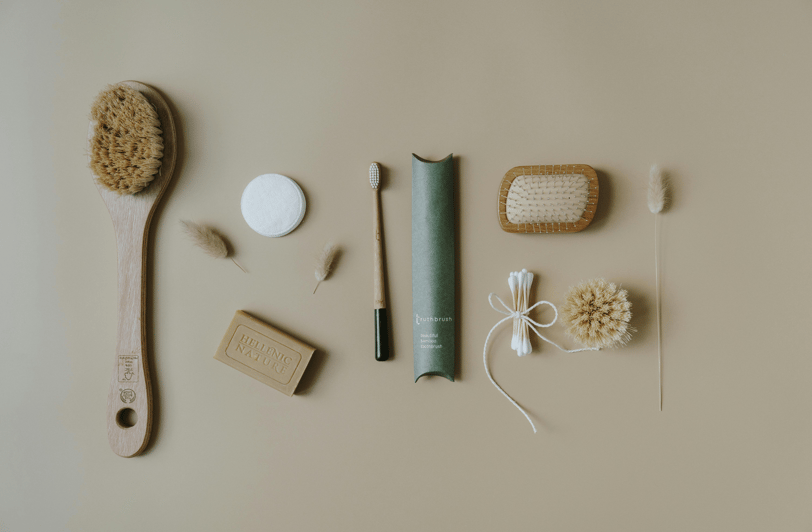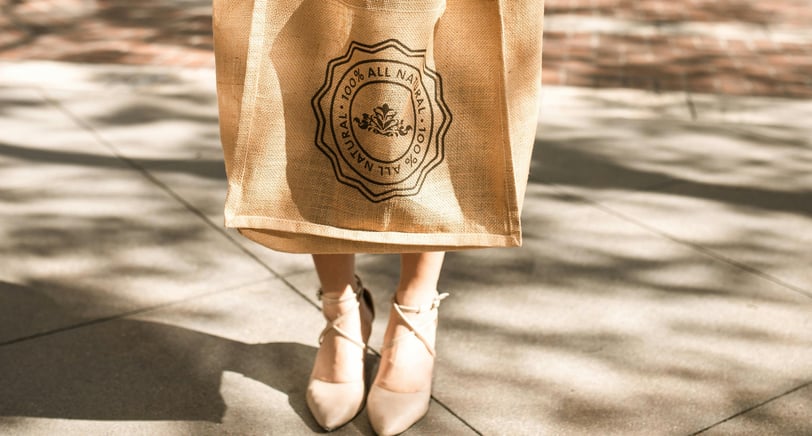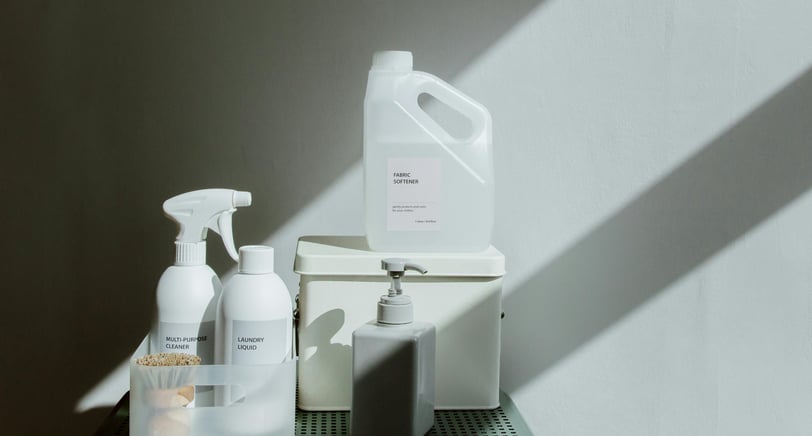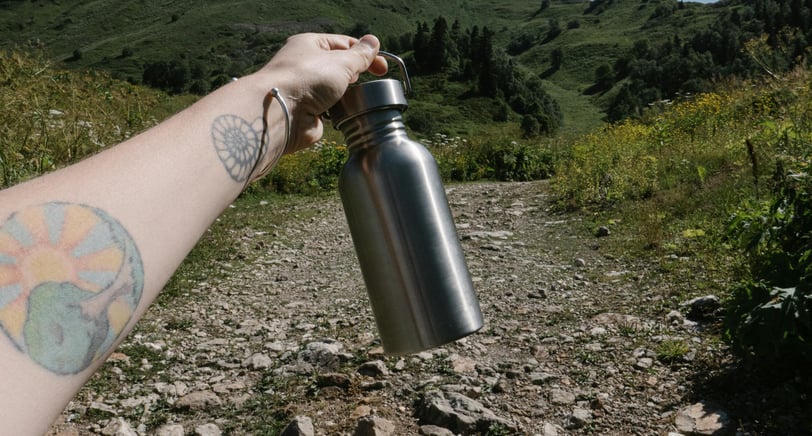Top 5 Affordable Eco-Friendly Products Everyone Can Afford
In today’s world, sustainability is more than just a trend—it’s a necessity. Yet, many believe that eco-friendly products come with a hefty price tag. The reality is that budget-friendly eco products do exist, and you don’t have to break the bank to make ethical choices. In this article, we’ll highlight five cost-effective, eco-friendly products everyone can afford, all featuring credible certifications and a focus on supporting smaller, local brands. By switching to these options, you’ll reduce your environmental footprint without putting strain on your budget. Let’s dive in!
SUSTAINABLE LIVING


Why Eco-Labels Matter
Before we explore the products, it’s important to understand the significance of eco-labels. Certifications like FSC (Forest Stewardship Council) and Fair Trade provide a seal of approval that products have been responsibly sourced and ethically produced. These eco-labels act as a consumer guide, helping ensure that your money supports practices that protect the planet and empower workers.
When shopping for eco-friendly products, look for certifications to ensure you're making a truly sustainable choice. This is crucial to avoiding “greenwashing,” where products falsely claim to be eco-friendly. With certified labels, you gain transparency in both environmental and ethical standards.
1. Bamboo Toothbrushes
Eco-Label: FSC-Certified Bamboo
Price: $3-$5 (per toothbrush)
Did you know? Plastic toothbrushes take hundreds of years to decompose, contributing to mounting landfill waste. Bamboo toothbrushes, by contrast, offer an affordable and sustainable alternative. FSC-certified bamboo ensures that the material is sourced from responsibly managed forests. Brands like Brush with Bamboo and The Humble Co. provide biodegradable, eco-friendly toothbrushes, often available in bulk for added savings. Switching to bamboo helps you reduce plastic waste and contribute to responsible forestry practices.
Cost Comparison: While a plastic toothbrush costs about $2, bamboo toothbrushes are priced at $3-$5. For a slight increase in cost, you gain a significantly smaller environmental footprint. Bamboo toothbrushes are also compostable, helping you reduce pollution from the start.
2. Reusable Grocery Bags
Eco-Label: GOTS (Global Organic Textile Standard)
Price: $1-$3 (per bag)
Single-use plastic bags are a major source of pollution, but reusable grocery bags offer a long-term, eco-friendly solution. Look for bags made from GOTS-certified organic cotton, which ensures that production practices are environmentally friendly and sustainable. Local brands like EcoRoots offer sturdy, budget-friendly reusable cotton bags in fun designs. These reusable bags not only replace hundreds of single-use plastic bags but also cut down on plastic pollution.
Cost Comparison: While a plastic bag costs about $0.10, reusable bags can be used hundreds of times, making them a great investment. Machine washable and durable, they save you money in the long run and keep single-use plastic out of the ecosystem.


3. Eco-Friendly Cleaning Products
Eco-Label: USDA Certified Biobased Product
Price: $4-$6 (per bottle)
Switching to eco-friendly cleaning products is a cost-effective way to reduce your household's environmental footprint. Look for products with the USDA Certified Biobased label, which means they are made from renewable resources. Brands like Seventh Generation offer affordable and concentrated cleaning solutions, which are often available in bulk or refillable containers. This not only saves money over time but also reduces waste and packaging.
Cost Comparison: Conventional cleaners are similarly priced, but eco-friendly options are gentler on the environment and often last longer due to their concentrated formulas. These cleaners also reduce harmful chemicals in your home, contributing to a healthier living space.


4. Stainless Steel Water Bottles
Eco-Label: BPA-Free, Recyclable
Price: $10-$15 (one-time investment)
Plastic water bottles are one of the leading contributors to global waste, but switching to a reusable stainless steel water bottle is an eco-friendly and cost-effective solution. Brands like Klean Kanteen offer durable, BPA-free bottles at affordable price points.
Cost Comparison: While 24-pack plastic water bottles cost around $5, reusable bottles offer long-term savings. Investing in a $10-$15 bottle not only saves you from repetitive purchases but also helps cut down on waste. Stainless steel bottles also keep drinks cooler for longer, adding both value and functionality.
5. Fair Trade Certified Coffee
Eco-Label: Fair Trade Certified
Price: $6-$10 (per pound)
Coffee is a daily essential for many, but traditional coffee farming can harm both the environment and farmers. Fair Trade Certified coffee ensures that farmers are paid fairly, and environmentally sound farming practices are used. Brands like Café Direct and smaller, local roasters offer affordable, high-quality Fair Trade coffee. Subscribing to bulk-buy services can further reduce costs, and you’ll also be supporting ethical farming communities.
Cost Comparison: While non-Fair Trade coffee may cost slightly less, Fair Trade coffee guarantees quality and ethical sourcing practices, making it worth the extra dollar or two per pound. Supporting Fair Trade means protecting both the environment and farmers' livelihoods.
Supporting Local and Smaller Brands
When choosing eco-friendly products, consider supporting smaller or local brands. Smaller businesses often have lower carbon footprints due to local production and less packaging, and they often offer unique, handmade items at competitive prices. Platforms like Etsy are great places to find affordable, eco-friendly alternatives from artisans.
Final Thoughts: Making the Switch to Sustainability
Switching to eco-friendly products doesn’t have to be expensive. By researching and focusing on certified eco-labels, you can find affordable options that benefit both the environment and your wallet. Whether it’s swapping out your plastic toothbrush for a bamboo one or investing in a reusable water bottle, every small change adds up in the larger movement toward sustainability.
You don’t need to overhaul your lifestyle overnight—start with a few affordable, eco-friendly swaps and build from there. Your wallet and the planet will thank you.
What eco-friendly swaps have you made so far? Follow us on socal media and drop your ideas in the comments. Let’s inspire each other to live more sustainably!




